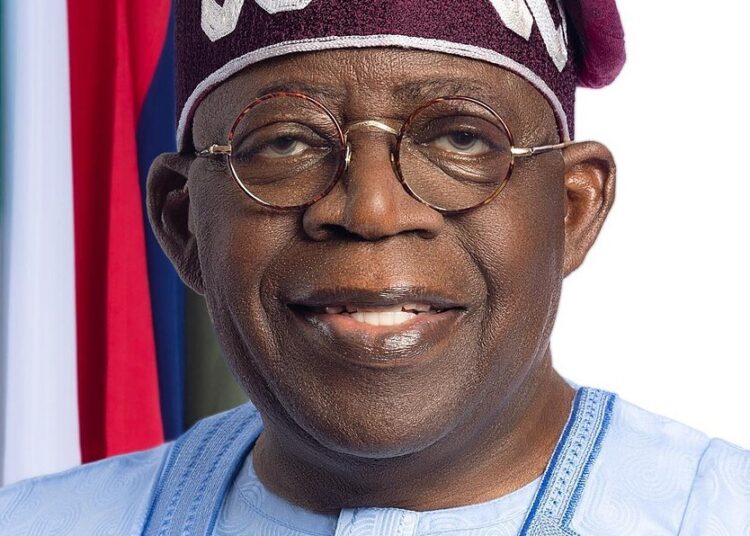In a modest Primary Health Centre tucked deep in Yobe State, Fatimah cradled her newborn with a mix of relief and disbelief. The delivery had been safe, the midwife skilled, and the treatment free. For a region long plagued by maternal mortality and fragile health infrastructure, such a story once felt rare. But today, across Northern Nigeria, it is becoming part of a larger, deliberate shift backed by bold political will and quiet structural reforms.
Since taking office, President Bola Ahmed Tinubu has made it clear that healthcare reform in Nigeria would not be rhetorical. It would be deliberate, driven by investment, community trust, and long-overdue system realignment.
Hence, what was once a sector defined by systemic rot is now showing signs of rebirth, with bold reforms, unprecedented investments, particularly in the North, where the fault lines of inequality often run deepest. Of a truth, the results are beginning to tell their own stories.
After appointing Prof. Muhammad Ali Pate as the Coordinating Minister of Health and Social Welfare in August 2023, the President immediately established a national consensus on the way forward. In 2023, the President summoned governors, international partners, and federal institutions to sign the Health Sector Renewal Compact. The outcome was not just another document, it was a shared commitment to reverse decades of underperformance. It birthed the Health Sector Renewal Investment Blueprint, which prioritized stronger governance, equitable access to services, local pharmaceutical production, and national health security.
On the ground, the Primary Healthcare revitalization agenda became the heartbeat of this transformation. Over 1,100 health centres were already upgraded within the past two years, with over 500 of those in Northern Nigeria alone. These facilities are not just buildings; they are gateways to antenatal care, skilled deliveries, immunization, and basic emergency services.
In the first quarter of 2025 alone, tens of thousands in the region accessed care through these centres, many for the first time in their lives. To tackle the North’s alarmingly high maternal death rates, the Maternal and Neonatal Mortality Reduction Innovation Initiative (MAMII) was launched.
To prove that the Renewed Hope Agenda is not just a blueprint, but a living and breathing paradigm of transformation, the Federal Government designated 154 health facilities, many of them in the North, to provide free treatment for women with obstetric complications. These facilities will cater to women experiencing health challenges during pregnancy, labour, delivery, or the postpartum period, which could affect the well-being of both mother and baby.
While the programme has commenced in some of the hospitals, MOUs have been signed in others ahead of kick-off. Among the Northern hospitals which are beneficiaries of this laudable initiative are: Aminu Kano Teaching Hospital; Murtala Mohammed Specialist Hospital, Kano; Mohammed Abdullahi Wase Specialist Hospital; Sir Yahaya Memorial Specialist Hospital, Birnin Kebbi; Federal Teaching Hospital Birmin Kebbi; Maryam Abacha Women and Children Hospital, Sokoto; Usmanu Danfodio University Teaching Hospital Sokoto; Abubakar Tafawa Balewa University Teaching Hospital, Bauchi; Federal University of Health Sciences Teaching Hospital, Azare, Bauchi; University of Maiduguri Teaching Hospital, Maiduguri; University of Abuja Teaching Hospital, Gwagwalda; Federal Medical Centre, Birnin Kudu; Federal Medical Centre, Bida; Yobe State University Teaching Hospital, Damaturu; Benue State University Teaching Hospital, Makurdi; Ahmadu Bello University Teaching Hospital Shika, Zaria.
Others are Bauchi Specialist Hospital, General Hospital, Toro, General Hospital, Ita, and General Gombe, the hospitals are General Hospital, Kaltungo, General Hospital, Bajoga, and Gombe State Specialist Hospital.
In Niger, General Hospital, Mokwa; General Hospital, Kuta; General Hospital, Tungan Magaji; Jummai Babangida Aliu Maternal & Neonatal Hospital; General Hospital, Suleja, are also on board this project.
Out of the 172 priority local government areas selected for urgent intervention, 74 percent are in the North. Here, where tradition often clashes with access, millions of pregnant women have now received vital micronutrient supplements. Over 13 million antenatal visits have taken place since 2023, and more than 4000 emergency caesarean deliveries have been conducted at no cost.
Vaccines are reaching deeper too. Over 14 million adolescent girls across Nigeria, including the majority of those taking place in remote corners of the North where millions of girls have received the HPV vaccine.
President Bola Ahmed Tinubu has equally subsidized the high cost of kidney care, specifically dialysis treatments, from over N50,000 down to N12,000 across the nation, but also in northern medical institutions, including: Federal Medical Centre Jabi, Abuja; University of Maiduguri Teaching Hospital, Borno; and Federal Medical Centre Azare, Bauchi.
Furthermore, with the VVF crisis ravaging female child health and development across Northern Nigeria, President Tinubu’s administration has introduced and implemented Free Fistula surgeries for thousands of young Nigerian women in Northern Nigeria at these institutions: NOFIC, Ningi, Bauchi; NOFIC, Babbar Rugar, Katsina; Women & Children Hospital, Damaturu, Yobe; Laure Fistula Center, Kano; Maryam Abacha Hospital, Sokoto; VVF Center Gesse, Birnin Kebbi; Hajiya Gambo Sawaba Hospital, Kaduna; VVF Center, State Specialist Hospital, Gombe; VVF Center, Gwarinpa Hospital,
Abuja; Bingham UTH, Jos, Plateau; Dr. Aisha Buhari Mother & Child Hospital, Ilorin, Kwara; Farida VVF Hospital, Gusau, Zamfara; Federal Medical Centre, Yola, Adamawa; and Jahun VVF Center, Dutse, Jigawa.
In Kebbi and some other states, a pilot malaria vaccination programme has already protected over 100,000 children. And in the Lake Chad Basin, a synchronized polio campaign has vaccinated over 53 million eligible children, helping drive Nigeria’s annual case count down to just 16, its lowest in years.
Yet, it is not just children and mothers who are feeling the impact. Over 1.9 million Nigerians living with HIV have continued receiving treatment despite donor funding challenges. Tuberculosis detection and treatment now reach hundreds of thousands, with a 94% success rate. More than 20 million insecticide-treated nets have been distributed, including to displaced and rural populations.
Meanwhile, medical innovation is being married to local realities. In 6 northern states, geo-spatial tools are being used to identify and track over 7 million children under five and more than 1 million pregnant women enabling real-time planning and immunization scheduling. It is a quiet revolution in public health administration, and it began where many assumed it could not.
At the tertiary level, the transformation is visible. Across the North’s teaching hospitals and diagnostic centres, from Kaduna and Sokoto to Jos and Ilorin, over four and a half million patients have accessed outpatient services under the administration’s investment wave. Interventional cardiology, radiology, and pathology services, once concentrated in major cities, are spreading into new medical frontiers.
Human capital remains central to this effort. President Tinubu’s administration has trained more than 61,000 frontline health workers and nearly four thousand health managers. In a bold move to seed the next generation of health leaders, a new fellowship programme was launched in March 2025. Youths were selected from all 774 local government areas, including over 400 young public health leaders from across all Northern Local Government Areas. They are currently being trained to lead innovation, research, and implement best practices in primary health care delivery.
The President’s commitment has drawn global recognition. Named the African Union Champion for Human Resources for Health and Community Health Delivery, President Tinubu has overseen the expansion of midwifery training and the scaling of enrolment in nursing institutions from 28,000 to 150,000. The First Lady, Senator Oluremi Tinubu, has also championed maternal care, distributing sixty thousand midwifery kits across the 6 geopolitical zones.
At the policy level, the administration is pushing for self-reliance in the health value chain. In October 2023, the President launched the Presidential Initiative for Unlocking the Healthcare Value Chain (PVAC). This strategy was designed to reduce Nigeria’s reliance on imported medical supplies. By June 2024, he had signed an executive order waiving import duties and VAT on essential medical equipment and raw materials. Less than a year later, Medipool, a group purchasing mechanism to aggregate demand and drive down costs, was approved.
Through these efforts, 70 bankable projects, worth $5 billion, are being pursued in partnership with institutions like the European Investment Bank and Afrexim Bank. From liquid oxygen plants to diagnostic kit assembly, the manufacturing landscape is shifting. International firms like Siemens, Abbott, and Wondfo are now investing in localized production, supported by policy and infrastructure reforms.
And the administration has not forgotten the people farthest from care. Through 48 Renewed Hope medical missions, 158,000 citizens in hard-to-reach or underserved areas, including remote northern communities, have received direct medical services.
This is not a health miracle. It is a method. A strategy built on partnership, data, transparency, and political clarity. The President’s approach challenges a long-standing narrative that the North is doomed to lag What we now see is that with the right leadership, political courage, and institutional backing, progress is not only possible, it is unfolding.
For too long, healthcare in Northern Nigeria has been discussedsedsedsedsedsedsed through the lens of despair. But the facts are changing, and so must the story. In maternity wards, at vaccine tables, in solar-powered primary care centres, and along dusty rural roads where health workers now reach, a quiet, patient revolution is underway.
–Salamatu Isa, a public health expert, writes from Yobe State.





